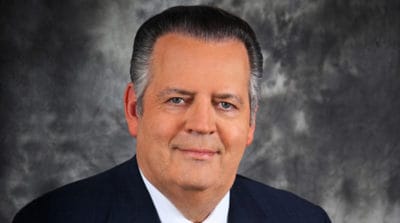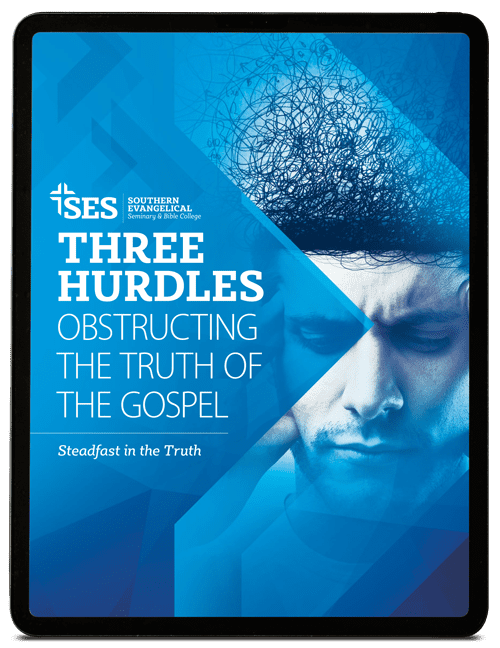CHARLOTTE, N.C.—Think about your greatest perceived weakness or fault—something you wish you could change about yourself—if only you had the means or the power.
Neil Harbisson, a Belfast-born 34-year-old living in Spain, did just that. Because of a rare condition called achromatopsia, he can’t perceive color—but wanted to. So now, over his head arches a black antenna with a fiber-optic sensor that picks up colors in front of him. A microchip in his skull converts the colors into vibrations on the back of his head, turning his head into a third ear of sorts. As a result, he can look at a blue blazer and a yellow jacket, for example, and describe them correctly.
This is not the stuff of sci-fi films, but rather an impending reality, as technology allows more and more of these “impossibilities” to be possible.
But, asks Southern Evangelical Seminary (SES, www.staging.ses.edu), which explores ethical issues through its “Ethics in Emerging Technology” program, how do these advancements connect to our faith—and should they?
“Perhaps the answers to these questions are not so easily uncovered,” said SES President and Evangelical leader Dr. Richard Land. “But here at Southern Evangelical Seminary, we believe we are uniquely positioned to be able to contribute to that discussion. Some time ago, we began the conversation about how faith and technology interact. And while some might think that a seminary considering issues of science and technology is out of the ordinary, helping our students delve into issues of faith and emerging technology is a perfect fit for a religious institution.”
Described as a “cyborg” by National Geographic for its April 2017 issue, Neil Harbisson does fit the Miriam Webster definition: someone “whose body contains mechanical or electrical devices and whose abilities are greater than the abilities of normal humans.” But, notes National Geographic, “Human enhancements needn’t confer superhuman powers.”
Were humans meant to better themselves through technology beyond how they were created? And how far is too far?
“We will continue to ask, ‘Just because it is possible, should we do it?’” Land said. “We continue to reach out to the technological community about these issues, and we have found that they are receptive. They understand the limitations of hard science to answer these ethical and moral questions. In fact, many in the technological community are reaching out to find some answers for themselves.”
The Daily Mail in the UK also recently reported that an expert from Google is predicting that in the next dozen years “technological singularity” will turn people into super humans. What is “technological singularity”? Some describe it as the point when carbon- and silicon-based intelligence merge to form a single global consciousness; it can also be the development of “superintelligence” brought about through the use of technology.
Google’s Director of Engineering, Ray Kurzweil, says when we live in a cybernetic society, we will have computers in our brains, and machines will be smarter than human beings, according to the Daily Mail. And he adds this is already happening—with an addiction to smartphones—and the next step is to wire that technology right to our brains.
Kurzweil, an author who describes himself as a futurist, made the claim at the South by Southwest (SXSW) conference in Austin, Texas, last month. “By 2029, computers will have human-level intelligence,” Kurzweil told SXSW. “’That leads to computers having human intelligence, our putting them inside our brains, connecting them to the cloud, expanding who we are. Today, that’s not just a future scenario. It’s here, in part, and it’s going to accelerate.”
Land concluded, “We must find ways to help Christians intelligently answer these unprecedented questions that confront us with the quantum leaps that are taking place in technology. SES exists to provide a synthesis of sound philosophy, classical apologetics and a cohesive theology for the glory of God in order to equip Christians to persuasively share their faith in a secular world. As Christians, we have the responsibility to take every thought captive to Christ, including emerging technology.”
For 25 years, SES has been educating Christians about how to best defend their beliefs, and for many of those years, has delved into the relationship between science or technology and faith. SES recently announced the 24th annual National Conference on Christian Apologetics. One of the largest events of its kind, the timely theme for 2017 is “Pursuing a Faith That Thinks.” The conference is set for Oct. 13-14, 2017, at Calvary Church in Charlotte, N.C.
The conference will welcome the nation’s top apologists, who will give the thousands in attendance new presentations on studies, research, history and insight into apologetics and other intellectual, scientific and religious fields. In addition to Land and SES co-founder Norman Geisler, confirmed conference speakers include Richard Howe, Greg Koukl, Jay Richards, Hugh Ross, Frank Turek and J. Warner Wallace, along with many others.
For more information on SES, visit its web site at www.staging.ses.edu or its Facebook page, follow the SESTwitter feed, @sesapologetics, or call (800) 77-TRUTH.
###
For information on SES or to set up an interview, contact Jen Retallick, 610-584-1096, ext. 100,Media@HamiltonStrategies.com, or Deborah Hamilton, 215-815-7716 or 610-584-1096, ext. 102.








